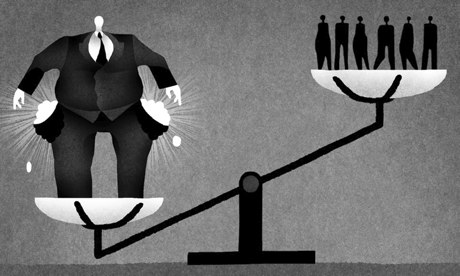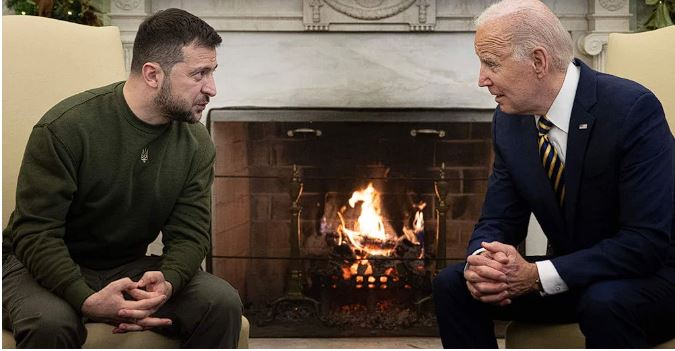
BRISTOL, England—On a recent evening in this port city, Mark Kerridge and Kester Ratcliff patiently explained the inner workings of the financial system to a roomful of people in a pub.
They aren’t lecturers from a university, or employees of a London bank. Mr. Kerridge works on a construction site and Mr. Ratcliff spent time in Thailand as a Buddhist monk. Their colleague Guy Harper, a onetime drum ‘n’ bass DJ who is now a financial adviser, chipped in with technical help.
The three men are members of a U.K.-based campaign group called Positive Money, which has a singular and radical goal: It wants commercial banks to be stripped of the power to create new money. Though governments are still focused on more modest reforms, its arcane message has found some surprising traction in higher policy circles.
The group believes that power creates wild swings in credit and destabilizes the economy by fueling asset bubbles in a boom and starving firms and households of funds in a bust. Its plan would require commercial lenders to keep a dollar of cash on hand for every dollar on deposit. Money creation would be the sole preserve of the state through its central bank.
Positive Money’s campaign highlights how in the aftermath of the economic crisis ordinary people have been delving deep into the financial undergrowth to examine the roots of the monetary system.
“After 2008, a lot of people knew the game was up,” said 46-year old Mr. Kerridge, referring to the financial crisis that pushed the global economy into recession. “I personally believe that if you can change money, you can change the world.”
Online and on the fringes of mainstream economic and political life, a vibrant subculture of monetary crusaders is emerging. These enthusiasts swap notes on long-forgotten economists, and argue about obscure topics like the gold standard and fractional-reserve banking.
Many people imagine that banks lend borrowers the cash parked with them by savers and, since savers don’t need constant access to all their funds, banks can make loans equivalent to many times the money they have on deposit.
In fact, whenever a bank makes a loan and credits the borrower’s account with the funds, it creates new money electronically with a couple of keyboard taps—or in previous decades by the stroke of a banker’s pen. James Tobin, an influential American economist, once described these newly minted deposits as “fountain-pen money.”
Today, these deposits exist as computer records and account for roughly 97% of U.K. money, according to the Bank of England, easily dwarfing the bank notes and coins in everyday circulation. In the U.S., such deposits account for around 89% of money, according to data from the Federal Reserve.
Not all backers of monetary reform believe Positive Money has the right answer: Many are drawn to digital currencies such as Bitcoin; in the U.S., the most vocal advocates would prefer to abolish the Federal Reserve than give it greater control.
But policy makers in Europe are paying attention. In Britain, lawmakers held a debate on money creation in November, discussing these and similar ideas. In Iceland, a report commissioned by the prime minister recommended in March that the island nation, nearly sunk by a banking crisis, adopt Positive Money’s proposal.
Frosti Sigurjónsson, the lawmaker who wrote the report, said he hopes Iceland’s parliament will debate his proposals in the winter, but said he’s unsure whether it will back such a radical change.
Wholesale money reform isn’t on most governments’ agendas. Postcrisis reforms have focused instead on making the existing financial system more resilient.
But Adair Turner, former head of Britain’s now-defunct regulator, the Financial Services Authority, said that though he doesn’t subscribe to all of Positive Money’s ideas, they represent a “powerful intellectual provocation” to policy makers working to make the financial system safer.
The group’s ideas have an illustrious pedigree: U.S. economists led by Henry Simons and Irving Fisher called for the implementation of a similar system in the aftermath of the Great Depression. Known as the Chicago Plan, in 2012 it was dusted off by economists at the International Monetary Fund, who found evidence to support Fisher’s claims such a system would make banking more stable and dramatically reduce public and private debt.
It has never been tried, and critics say such a system would have significant drawbacks. In particular, they contend that it risks providing the economy with too little of the credit that greases its wheels—a charge proponents dispute because, they say, the central bank would be empowered to create as much money as it needs.
“Credit is something that represents human economic potential and activity,” said Ann Pettifor, director of Policy Research in Macroeconomics, a London-based think tank. She said Positive Money’s analysis doesn’t acknowledge that money creation is driven by demand for loans to finance spending and investment.
Stripping banks of the means to meet this demand and handing it to a central-bank committee would be “authoritarian,” she said.
Other critics focus on the risk that a sovereign-money system would sap bank profits, sounding the death knell for commercial banking. It may make it harder for households to smooth their spending over their lifetime by getting a mortgage, for example.
Nonetheless, Positive Money’s ideas have hit a chord with some in a still reeling public.
“We’ve been making something that’s been reserved for policy wonks and academics into something that ordinary people can talk about,” said Ben Dyson, a 30-year-old who founded the group in 2010 after watching the financial crisis unfold.
It now has some 260 activists in the U.K. and 24,000 subscribers to its online mailing list. Its posts on YouTube have been viewed tens of thousands of times.
Among those attending the recent pub gathering in Bristol, was 67-year-old Richard Nile. The lawyer said he’s not sure Positive Money have all the answers but agreed that lenders should be subject to stricter controls. “The banks have got too big and too greedy,” he said.




An additional problem with the current monetary system is that the abundance of cheap consumer credits creates an illusion of wealth, disguising the fact that real wages are stagnating or declining almost everywhere in the Global North. The stagnation / decline of real wages, for its part, is a direct result of the redistribution of income from wages to profits that has been going on for the past three decades or so. If consumer credits were no longer as cheap or as readily available as they are today, this redistribution of income would have to be reversed – and quite radically at that – in order to avoid a collapse in global demand.
spot on. Its a largely hidden issue that the UK runs a huge amount of debt leveraged against property – and a truly terrifying amount that is secured on nothing and attracting credit card interest rates. Sooner or later this will go spectacularly awry.